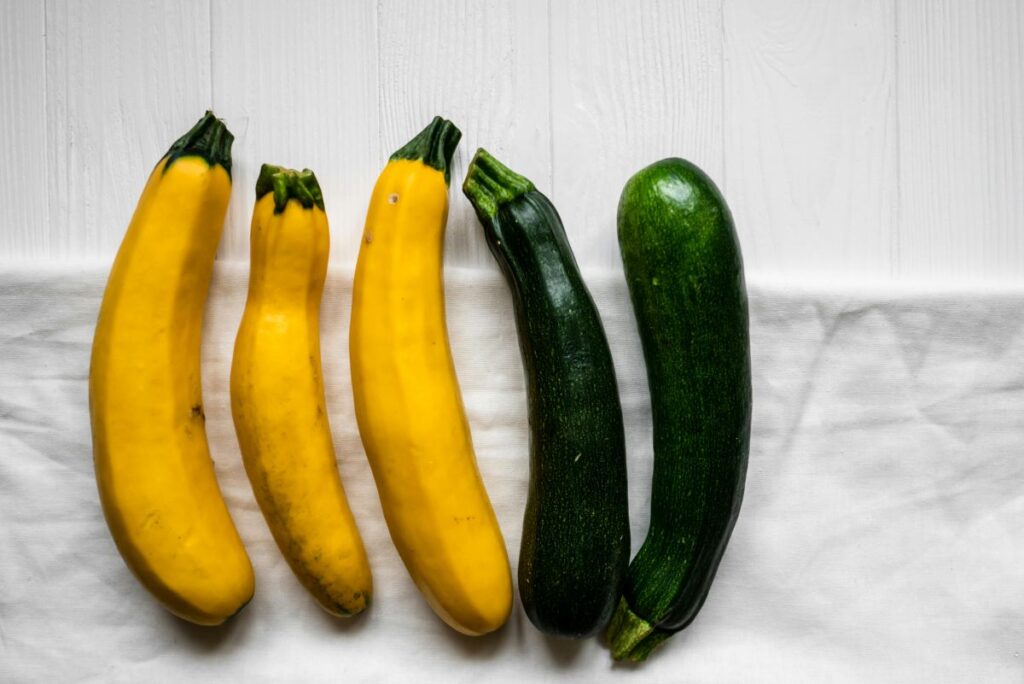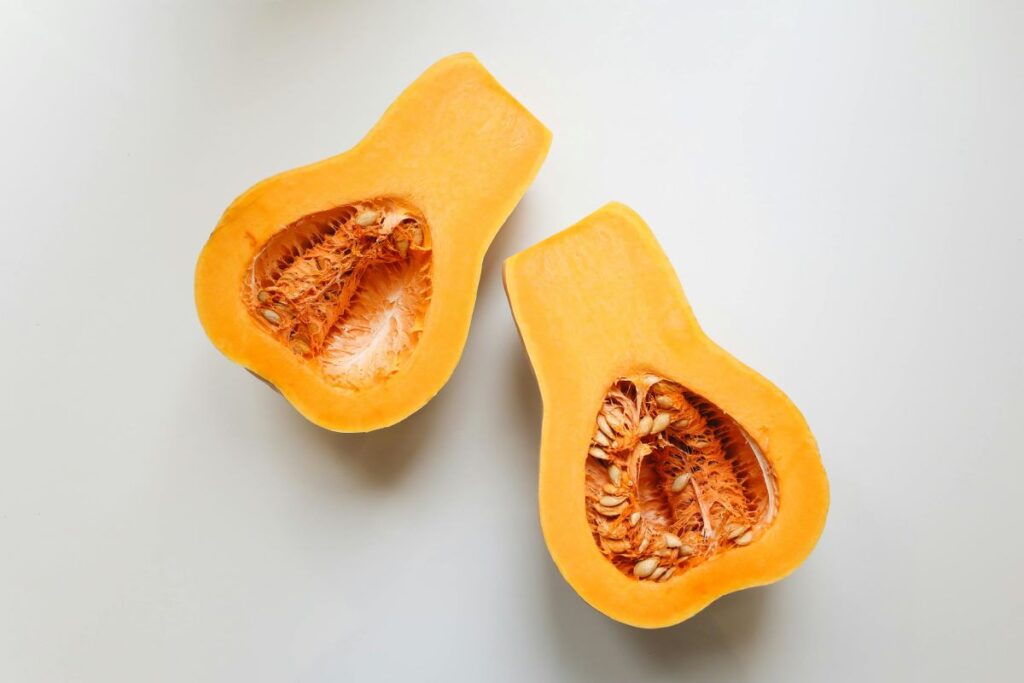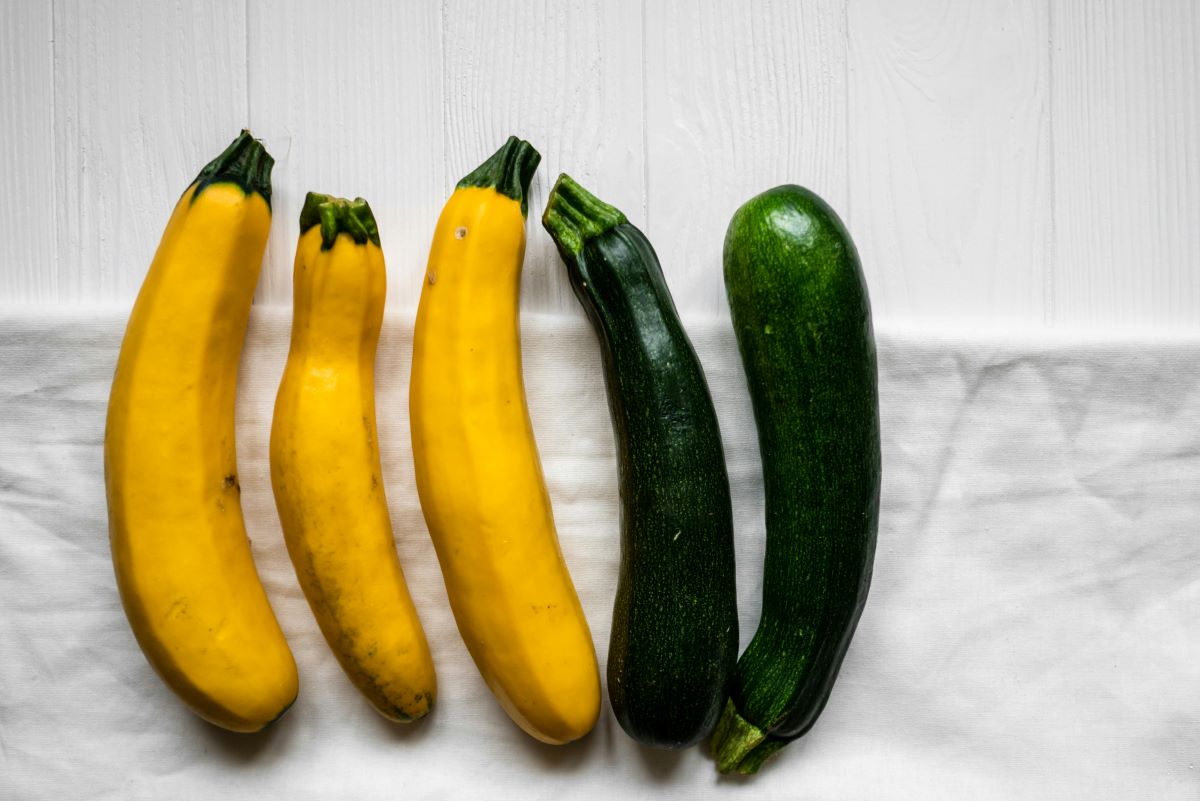Have you ever walked past those colorful, oddly-shaped vegetables in the grocery store? You know the ones. They sit there quietly. Orange ones. Green ones. Yellow ones too. Well, it’s time you got to know them better. These humble vegetables are actually nutritional powerhouses. And they’re waiting to transform your health.
Squash might look simple. But don’t let that fool you. This amazing food packs more punch than you’d ever imagine. Plus, it tastes incredible. Whether you’re a cooking newbie or a kitchen expert, squash will become your best friend. Trust me on this one.

Table of Contents
What Is Squash?
Let’s start simple. Squash comes from a big plant family. Scientists call it Cucurbitaceae. But you don’t need to remember that fancy name. What matters is this: squash comes in two main types. Summer squash and winter squash.
Summer squash grows fast. It has soft skin. You can eat it right away. Think zucchini. Think yellow squash. These are your summer friends. They’re tender. They’re mild. And they cook quickly too.
Winter squash is different. It takes longer to grow. The skin gets hard. But here’s the cool part: it lasts longer. Butternut squash belongs here. So does acorn squash. And don’t forget spaghetti squash either.
Now, here’s something fun. Botanists say squash is actually a fruit. But we cook it like a vegetable. So most people call it a veggie. Either way, it’s delicious. And that’s what really counts.
Also read, Cucumber: Benefits, Side Effects, Nutrition, Calories, & More.
The Nutrition Facts That Will Blow Your Mind
Ready for some amazing news? Squash is like nature’s multivitamin. Seriously. One cup of cooked butternut squash gives you incredible nutrition. And it only has 82 calories. That’s less than a small apple!
Here’s what you get:
- Protein: 1.8 grams
- Fat: Almost zero
- Carbs: 22 grams
- Fiber: 6.6 grams
- Sugar: Just 4 grams
But wait. There’s more. The vitamin content will shock you. One cup gives you more than 100% of your daily vitamin A needs. That’s incredible! Plus, you get nearly 40% of your vitamin C. Your body will thank you.
The minerals are impressive too. You get magnesium, potassium, and even calcium. All in one simple, tasty package. No wonder our grandparents loved squash so much.
Eight Amazing Health Benefits You Need to Know

1. Your Eyes Will Love This Vegetable
Your eyes work hard every day. They deserve the best care. Fortunately, squash delivers exactly what they need. It’s packed with beta-carotene. This turns into vitamin A in your body. And vitamin A keeps your eyes healthy.
But there’s more. Squash also has lutein and zeaxanthin. These are special antioxidants. They protect your eyes from damage. They help prevent cataracts too. Plus, they fight age-related vision problems.
Eating squash regularly means better eye health. It means clearer vision as you age. And it means protecting your precious sight. Your future self will thank you for this simple choice.
2. Boost Your Immune System Naturally
Nobody likes getting sick. Fortunately, squash helps keep illness away. How? It’s loaded with vitamin C. This vitamin supercharges your immune system. It helps your body make more white blood cells. These cells fight off infections.
The beta-carotene helps too. Once it becomes vitamin A, it strengthens your body’s defenses. It helps your skin stay strong. It protects your respiratory system. And it keeps harmful germs out.
During cold season, squash becomes your secret weapon. Eat it regularly. Feel stronger. Stay healthier. It’s that simple.
3. Keep Your Heart Happy and Strong
Your heart beats about 100,000 times each day. That’s a lot of work. So give it the support it needs. Squash contains potassium and magnesium. These minerals help your heart stay healthy.
Potassium helps control blood pressure. When your blood pressure stays normal, your heart doesn’t work as hard. Magnesium helps your heart beat regularly. It keeps the rhythm steady and strong.
The fiber in squash helps too. It lowers bad cholesterol levels. Lower cholesterol means healthier arteries. Healthier arteries mean better blood flow. Better blood flow means a happier heart.
4. Say Goodbye to Digestive Problems
Stomach troubles are no fun. Bloating hurts. Constipation is uncomfortable. But squash can help solve these problems. How? It’s all about the fiber.
One cup of squash gives you 6.6 grams of fiber. That’s about 25% of what you need daily. This fiber does amazing things. First, it adds bulk to your stool. This helps everything move along smoothly.
Second, fiber feeds the good bacteria in your gut. These bacteria keep your digestive system healthy. They help you absorb nutrients better. They even boost your mood. Who knew gut health was so important?
5. Get Glowing, Youthful Skin
Want beautiful skin without expensive creams? Try eating more squash. It’s packed with vitamins A and C. These vitamins work together to keep your skin healthy.
Vitamin C helps make collagen. Collagen keeps your skin firm and smooth. It reduces wrinkles. It makes your skin look younger. Plus, vitamin C protects against sun damage.
Vitamin A helps your skin repair itself. It keeps skin cells healthy. It gives you that natural glow. And it helps prevent acne too. Beauty really does come from within.
6. Build Stronger Bones for Life
Strong bones matter at every age. They support your body. They protect your organs. And they help you stay active. Squash provides several bone-building nutrients.
Calcium is the obvious one. But squash also gives you magnesium. Magnesium helps your body use calcium properly. Without magnesium, calcium can’t do its job.
Vitamin A helps too. It supports bone formation. It helps your body build new bone tissue. And it keeps existing bones strong. This combination makes squash a bone-health superstar.
7. Keep Blood Sugar Levels Steady
Blood sugar spikes are nobody’s friend. They make you tired. They make you hungry. And they can lead to serious health problems. Fortunately, squash helps keep blood sugar stable.
Squash has a low glycemic index. This means it doesn’t spike your blood sugar quickly. Instead, it provides steady energy. The fiber helps too. It slows down sugar absorption.
This makes squash perfect for people with diabetes. It’s also great for anyone who wants steady energy. No more afternoon crashes. No more sugar cravings. Just consistent, reliable fuel.
8. Support Your Mental Health Naturally
Mental health matters just as much as physical health. And squash can help here too. It contains vitamin B6 and folate. These nutrients support brain function.
Vitamin B6 helps make neurotransmitters. These chemicals control your mood. They help you feel happy and calm. Folate works similarly. It supports the production of feel-good chemicals.
Regular squash consumption might help reduce depression risk. It might improve your overall mood. And it definitely supports better brain health. Your mind deserves this kind of care.
Are There Any Side Effects to Worry About?
Squash is incredibly safe for most people. But like any food, it can cause problems for some. Here’s what to watch for.
Allergic Reactions
Some people are allergic to squash. This is rare but possible. Symptoms might include itching. You might get swelling. Some people develop a rash. If this happens, stop eating squash immediately.
The allergy might be mild. Or it could be serious. When in doubt, see a doctor. They can test for squash allergies. They can also suggest alternatives.
Digestive Discomfort
Remember all that fiber we talked about? Sometimes it can cause problems. If you’re not used to high-fiber foods, start slowly. Too much fiber too fast can cause bloating. It might cause gas too.
The solution is simple. Start with small amounts. Let your body adjust. Gradually increase your squash intake. Most people adapt quickly. Then you can enjoy all the benefits without discomfort.
Kidney Stone Concerns
Some squash varieties contain oxalates. These are natural compounds. But they can contribute to kidney stones in sensitive people. If you’ve had kidney stones before, talk to your doctor first.
Most people don’t need to worry about this. The benefits of squash usually outweigh the risks. But it’s good to be informed. Knowledge helps you make better choices.
Simple Ways to Enjoy Squash Every Day
Now comes the fun part. How do you actually eat all this nutritious goodness? Squash is incredibly versatile. There are dozens of delicious ways to prepare it.
Roasting: The Easiest Method
Roasting brings out squash’s natural sweetness. Cut your squash into cubes. Toss with a little olive oil. Add some salt and pepper. Maybe throw in some herbs.
Roast at 400°F for about 25-30 minutes. The edges should get slightly caramelized. The inside should be tender. This method works with any type of squash.
Soups: Comfort in a Bowl
Squash makes incredible soups. The texture becomes creamy and smooth. The flavor is rich and satisfying. Plus, soup is perfect for cold days.
Cook your squash until tender. Add some broth. Blend everything together. Season to taste. You can add coconut milk for extra creaminess. Or try some warming spices like ginger and nutmeg.
Salads: Add Color and Nutrition
Roasted squash makes salads more interesting. It adds sweetness. It provides beautiful color. And it makes salads more filling too.
Try butternut squash with spinach and cranberries. Add some nuts for crunch. Use a simple vinaigrette. The combination is absolutely delicious.
Pasta Alternative: Go Low-Carb
Spaghetti squash is amazing this way. When cooked, it naturally separates into strands. These strands look just like pasta. But they have way fewer calories and carbs.
Top with your favorite sauce. Add some vegetables. Maybe include some protein. You get all the satisfaction of pasta with much better nutrition.
Baking: Sweet Treats Made Healthier
Pureed squash works wonderfully in baked goods. It adds moisture. It provides natural sweetness. And it boosts the nutrition significantly.
Try adding squash puree to muffins. Use it in pancakes. Mix it into bread recipes. You’ll be amazed at how delicious and moist everything becomes.
Shopping and Storage Tips
Buying good squash is easy when you know what to look for. First, check the skin. It should be free from cuts or soft spots. The squash should feel heavy for its size.
For winter squash, look for hard, intact stems. Avoid anything with green spots. The color should be consistent and vibrant.
Storage is simple too. Summer squash should go in the refrigerator. Use it within a week for best quality. Winter squash can sit on your counter. It lasts for months in a cool, dry place.
Making Squash a Regular Part of Your Life
The key to getting squash benefits is consistency. Don’t just eat it once and forget about it. Make it a regular part of your meals. Start with once or twice a week. Then gradually increase from there.
Meal prep makes this easier. Roast a big batch on Sunday. Use it throughout the week in different dishes. Add it to salads. Mix it into grain bowls. Blend it into smoothies.
Keep trying new varieties too. Each type of squash has a slightly different flavor. Some are sweeter. Others are more savory. Experimenting keeps things interesting.
The Bottom Line: Why Squash Deserves a Place on Your Plate
Squash isn’t just another vegetable. It’s a nutritional powerhouse disguised as humble produce. It supports your eyes, heart, bones, and immune system. It aids digestion and helps regulate blood sugar levels. And it even supports mental health.
The best part? It’s incredibly versatile and delicious. You can roast it, blend it, spiralize it, or bake with it. There are endless possibilities. And it’s affordable too.
So next time you’re at the grocery store, don’t walk past the squash section. Stop and pick up a few varieties. Take them home. Try them out. Your body will thank you for it.
Starting today, make squash a regular part of your healthy eating plan. Your future self will be grateful. Your taste buds will be happy. And your health will benefit in countless ways. That’s the power of this amazing, humble vegetable.
Remember, small changes lead to big results. Adding squash to your diet is one of the easiest, most delicious changes you can make. So why wait? Start your squash journey today. Your body deserves this kind of nourishment. And you deserve to feel your absolute best.

